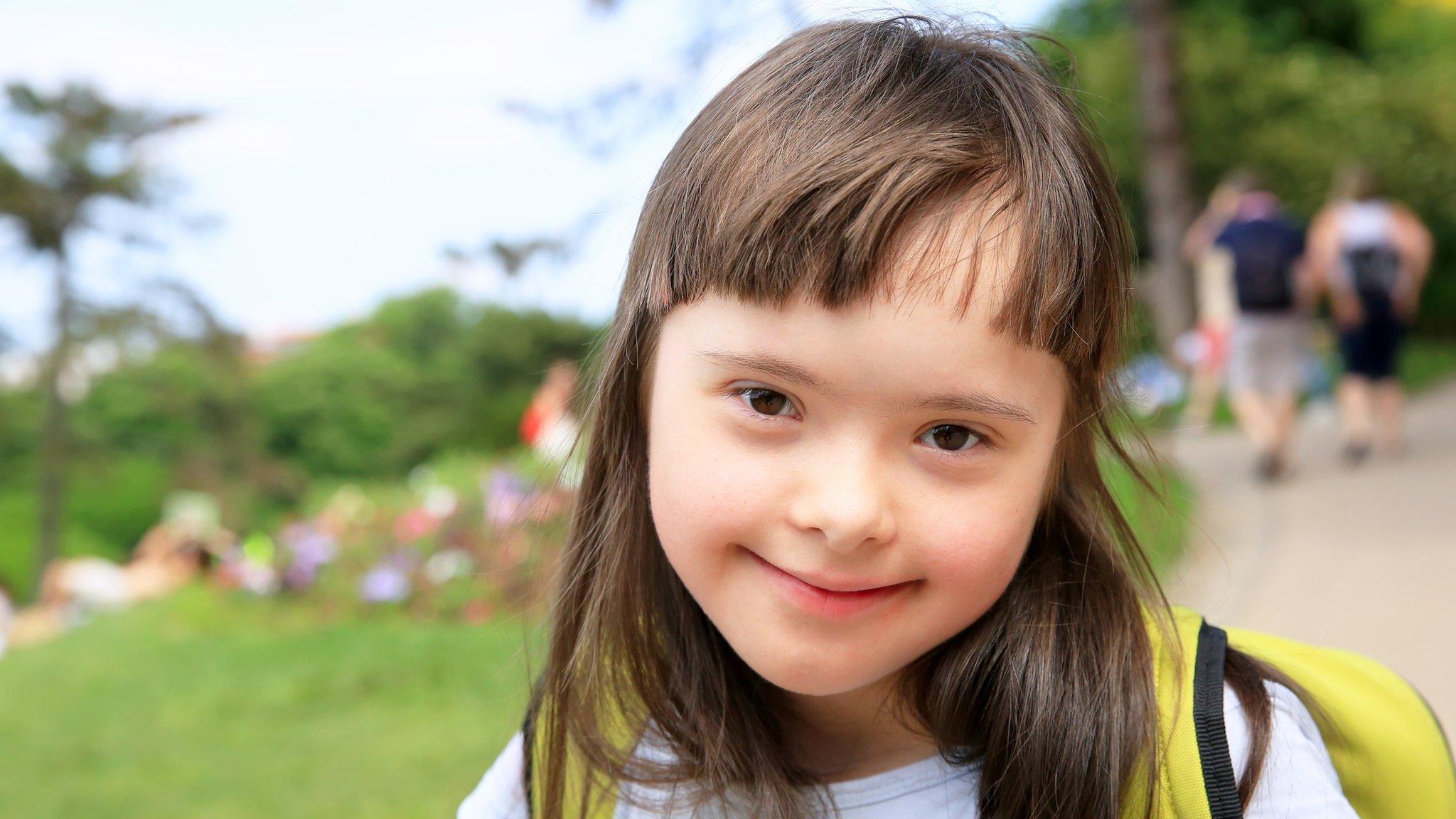Barbie: First doll with Down's syndrome announced
- Published
- comments
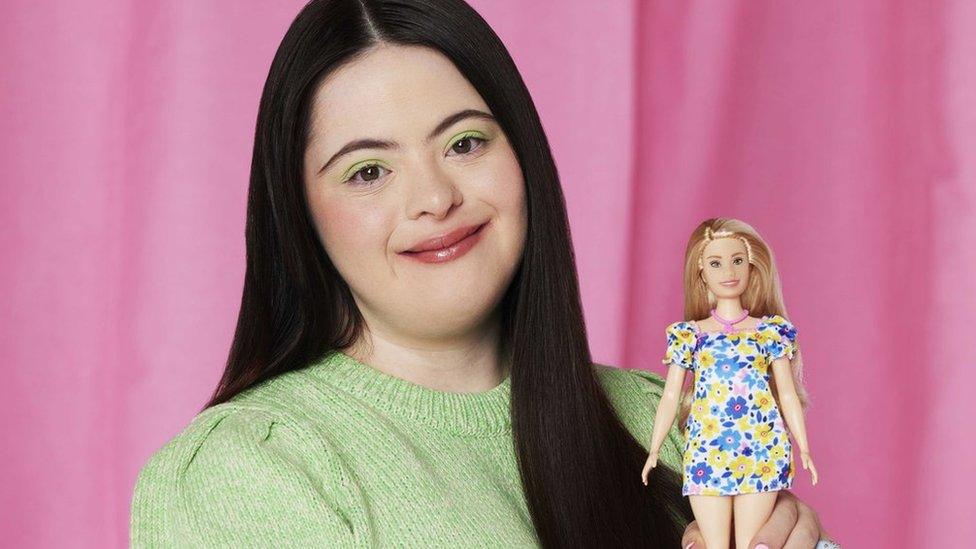
Ellie said she was 'honoured and proud' to be able to show off the new doll to the world
The first Barbie doll with Down's syndrome has been revealed by British model Ellie Goldstein.
Speaking about the doll, Ellie said: "I am so happy that there is a Barbie with Down's syndrome."
"Seeing the doll, I felt so overwhelmed - it meant a lot to me... diversity is important to me as people need to see more people like me out there in the world and not be hidden away." she said.
Mattel, the company which owns Barbie, said the doll would be joining their latest Fashionistas line alongside a Barbie wearing braces and a Ken with a prosthetic leg which will be released on 3 May.
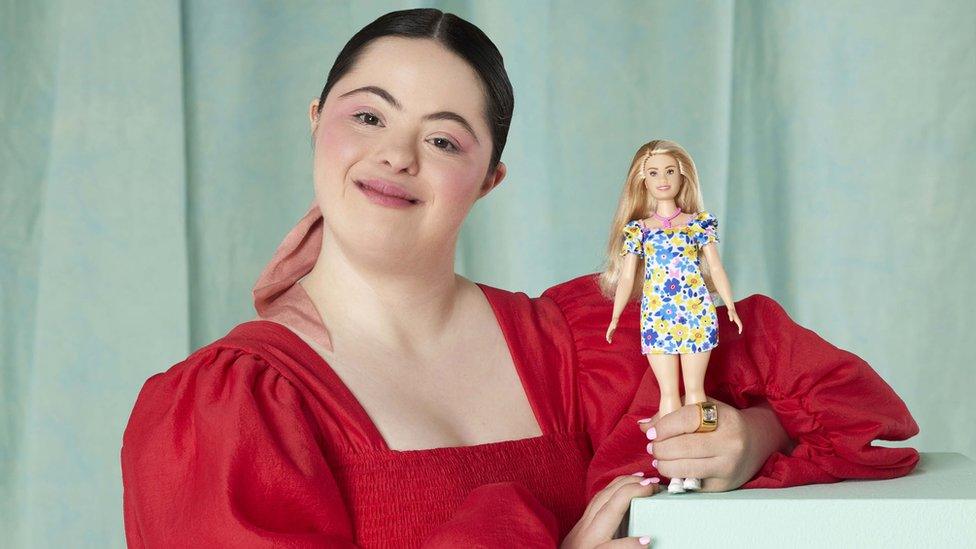
Ellie made history as the first model with Down's syndrome to appear in big campaigns for fashion brands like Gucci Beauty and Adidas. She is also one of British Vogue's cover stars this May.
To bring the doll to life, Barbie teamed up with the National Down Syndrome Society (NDSS), an organisation in the US and a group of medical professionals.
They made changes to the Barbie's face and body to better reflect what a person with Down's syndrome might look like, including a rounder face, a shorter height and longer body, and a single line on the doll's palm - something those who have Down's syndrome often have.
Down's syndrome is a genetic condition which can affect the way a person learns and looks.
It is not a disease, an illness or a condition that someone can catch.
There are around 60,000 people in the UK with Down's syndrome.
The doll's clothes and accessories have also been specially designed.
The doll's pink necklace has a pendant with three arrows on it, which represents the three copies of the 21st chromosome - the genetic material that causes the characteristics associated with Down's syndrome.
The doll's dress features butterflies and yellow and blue colours, which are symbols associated with Down's syndrome awareness, and the doll also wears pink ankle foot orthotics (AFOs) which can sometimes be used by children with the condition.
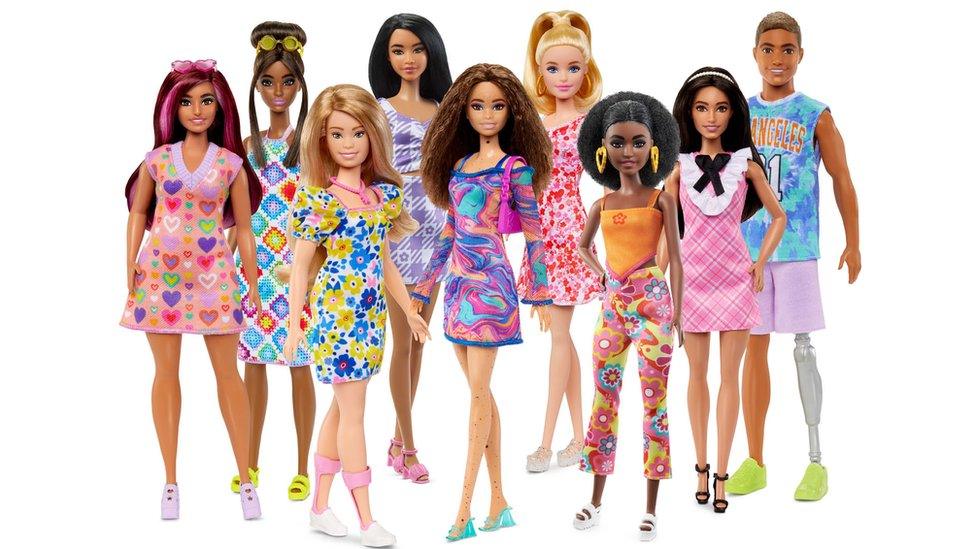
Some of the other Barbies in the new collection
Carol Boys, the chief executive of the UK Down's Syndrome Association, says "The Down's Syndrome Association (DSA) are pleased to see that Barbie is introducing a doll who has Down's syndrome into their range.
"We look forward to seeing her on the shelves alongside Barbies who wear hearing aids, use wheelchairs, and celebrate inclusion." she said.
"This means so much for our community, who for the first time, can play with a Barbie doll that looks like them." said Kandi Pickard, NDSS President.
"This Barbie serves as a reminder that we should never underestimate the power of representation. It is a huge step forward for inclusion and a moment that we are celebrating."
- Published27 July 2020
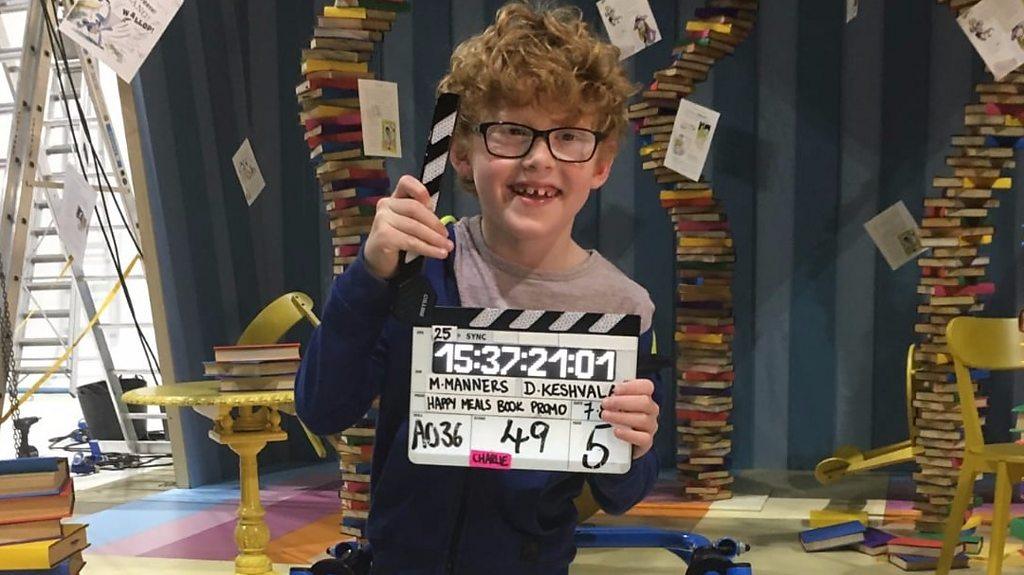
- Published21 March 2024
